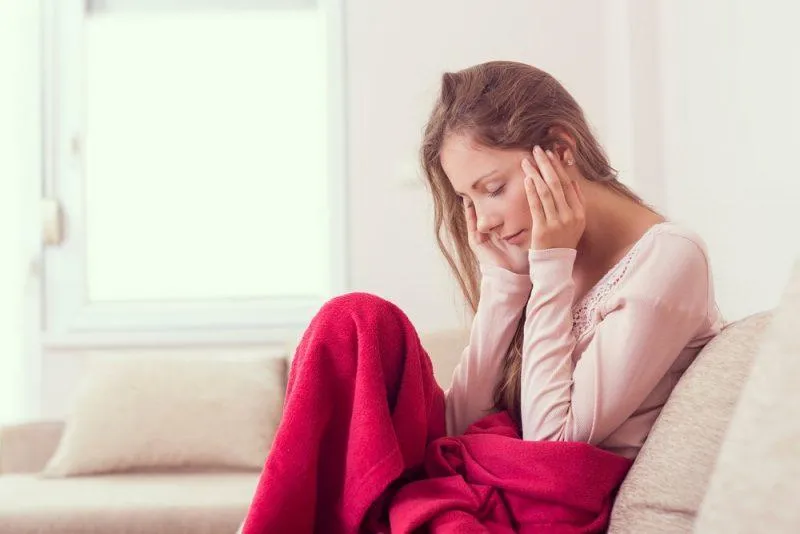Unlock Your Path to Serenity: Join 'Worry Free' Today!
Transform Your Daily Stress into Peace of Mind with Just a Text
Turn Your Volume Up! (Please Wait For The Video To Fully Load)
In a world that moves fast, stress and anxiety can often keep pace, shadowing our every step.
But what if you could press pause, breathe out your worries, and breathe in peace?
Welcome to "Worry Free" – your personal sanctuary in the form of a subscription service designed to guide you from chaos to tranquillity, one message at a time.
How It Works:
Daily Check-Ins: Each day, you'll receive a personalized SMS inviting you to share what's weighing on your mind.
Outsource Your Stress: Simply reply to our message, unloading your worries, knowing they're being handled with care.
Experience Peace: With your stress outsourced, you're free to enjoy a clearer mind and a lighter heart, ready to embrace the day's beauty.
Why "Worry Free"?
Proven Stress-Relief Techniques: Leveraging the power of sharing to alleviate mental burdens, "Worry Free" offers a unique approach to managing anxiety.Privacy and Confidentiality: Your peace of mind is our top priority. Share with confidence, knowing your messages are treated with the utmost respect and discretion.
Affordable Peace: At just $24.95 per month, tranquility and a supportive community await you, without breaking the bank.

Anxiety Poops: Understanding the Connection between the Brain and the Gut
“Anxiety Poops are the result of the brain's interpretation of stress, which triggers the production of hormones that impede digestion and lead to abdominal cramping and diarrhoea.”
What Causes Anxiety Poops
If you've ever suffered from anxiety poops, or "nervous bowel syndrome," you know how unpleasant and embarrassing they can be. However, what really triggers these deathly diarrhoea episodes? Let's delve in and examine the research behind the cause of your anxious bowel movements.
The relationship between the brain and the digestive system must be grasped first. The stomach, or enteric nervous system, is frequently called the "second brain" due to the fact that it has its own set of nerves and performs distinct duties from the brain in the skull. There is a complicated network of nerves and hormones that allows the brain to interact with the gut, and when the brain detects a stressor, it sends messages to the gut to be ready for the "fight event flight" reaction.
The body's inborn response to threats is called the "fight or flight" response. When triggered, the body produces adrenaline, which speeds up the heart rate, raises blood pressure, and directs more blood to the muscles in preparation for exercise. However, the slowed digestion that results from this response might induce abdominal pain, diarrhoea, and the urgent need to use the restroom.
What exactly causes Anxiety Poops in some people and not others? To what extent an individual experiences stress is ultimately up to them. The "fight or flight" reaction can be triggered by very mild stressors for some people, whereas for others it takes significantly more significant stressors to do so. One's susceptibility to the negative effects of stress on the digestive tract may also be determined by one's genetic makeup.
Anxiety Poops are the result of the brain's interpretation of stress, which triggers the production of hormones that impede digestion and lead to abdominal cramping and diarrhoea. Anxiety Poops may be related to stress, but it doesn't make them any less of a medical concern. Irritable bowel syndrome isn't the only digestive disorder that can be triggered by stress (IBS).
We'll look at some strategies for dealing with and avoiding Anxiety Poops in the next chapter, but first, it's important to realise that getting to the root of your worry is essential to overcoming this uncomfortable symptom. Do not be reluctant to seek the assistance of a mental health expert if you find yourself experiencing anxiety pooping.
Managing and Preventing Anxiety Poops
There are strategies for dealing with and avoiding anxiety bowel movements, which can be a genuine nuisance. Some suggestions are provided below for managing your bowel habits.
Yoga, meditation, and deep breathing exercises are all examples of relaxation practises that can help reduce stress and anxiety, which in turn can help reduce the frequency of anxious bowel movements.
Eating a diet high in fibre and low in processed foods can help keep your bowels regular. Avoiding caffeine and alcohol can also aid in the fight against diarrhoea.
Thirdly, regular exercise has been shown to promote gut health and reduce stress and anxiety.
Medication: Antidepressants and anti-anxiety drugs can help alleviate anxiety symptoms, such as diarrhoea. Medication use should only be initiated after discussion with a medical expert.
Therapy: Talking to a professional who specialises in mental health issues can help you figure out what's triggering your anxiety and create an effective treatment plan.
You can learn more about what sets off your anxiety attacks by keeping a record of when they happen and what you were doing or feeling at the time.
What helps one person with anxiety poop may not help another, and vice versa. Finding the best method(s) for you will likely need some experimentation.
Not only should the physical manifestations of anxiety be treated, but also the underlying anxiety itself. The source of your anxiety can be determined and treated with the assistance of a mental health expert, who can also help you learn effective coping mechanisms.
The bowel movements associated with anxiety are unpleasant and embarrassing, but they can be controlled and avoided with the correct methods. Managing anxiety poop can involve relaxation techniques, a change in diet and/or exercise routine, medication, therapy, and/or the recognition and avoidance of triggers. Keep in mind that treating the symptom of anxiety without addressing the cause is ineffective. Do not put off seeing a mental health professional if you feel that your anxiety problems are getting worse.
For The Ultimate Solution For Managing Daily Stresses And Worries Click Here
Summary
When the brain interprets stress, it releases hormones that slow down digestion and produce stomach pains and diarrhoea; this condition is known as "anxiety poops" or "nervous bowel syndrome." Stress, panic, and uneasiness are just some of the potential triggers for these signs and symptoms. Anxiety Poops are a sign of anxiety rather than a medical problem in and of themselves. The body's "fight or flight" mechanism, which is triggered in response to a stressful or anxious circumstance, is to blame for these reactions.
Relaxation methods, dietary adjustments, and medication all work together to manage and avoid anxiety bowel movements. Yoga, meditation, and deep breathing are just some of the stress- and anxiety-busting relaxation practises you can try. To keep your bowels regular, try eating more whole foods and less processed stuff. Avoiding caffeine and alcohol can also aid in the fight against diarrhoea. Anxiety Poops can be alleviated with the use of antidepressant and antianxiety medicines. Medication use should only be initiated after discussion with a medical expert. If you're struggling with anxiety, talking to a therapist or counsellor can help you figure out what's triggering it and create a plan to address it. Understanding what sets off your anxiety diarrhoea can help you avoid it in the future.
What helps one person with anxiety poop may not help another, and vice versa. Finding the best method(s) for you will likely need some experimentation. Not only should the physical manifestations of anxiety be treated, but also the underlying anxiety itself. The source of your anxiety can be determined and treated with the assistance of a mental health expert, who can also help you learn effective coping mechanisms.
DISCLAIMERS
FACEBOOK - This site is not a part of the Facebook website or Facebook Inc. Additionally, this site is NOT endorsed by Facebook in any way. FACEBOOK is a trademark of FACEBOOK, Inc.
MEDICAL - This website and its content are for informational and entertainment purposes only. The information provided on this website should not be considered medical advice or a substitute for professional medical treatment. Always seek the advice of your doctor or other qualified healthcare provider with any questions you may have regarding a medical condition. Do not disregard professional medical advice or delay seeking treatment based on information you have read on this website.
